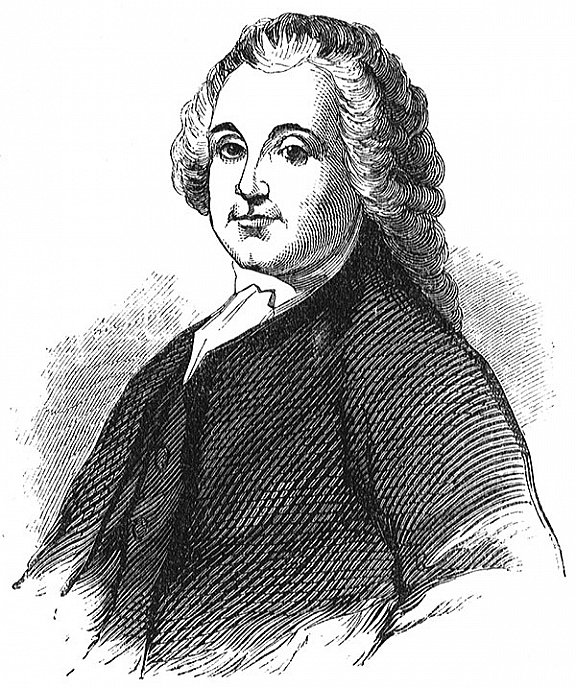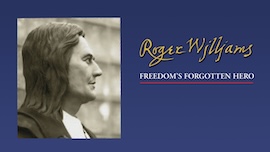Roger Williams Braved Much To Make Rhode Island Free

A Puritan, Roger Williams became America’s first Baptist leader.
SEVENTEENTH-CENTURY ENGLAND had fewer religious rights than Americans are accustomed to today. Catholics, Quakers, Baptists, and Puritans often went to prison or even died for their beliefs. Other Christians fled to the American colonies to escape persecution. Among them was Roger Williams.
Roger Williams was a controversialist. Although he was ordained in the Church of England, his Puritan views soon forced him out of that church. He migrated to New England in 1631. However, Bostonians also took issue with him, for he rejected leadership of one of their churches for keeping ties to the Church of England. Williams plainly announced that the godly must separate from the ungodly. He also proceeded to offend the governments of Salem and Plymouth by declaring it was wrong for them to take Indian land without paying for it.
Finally, he struck at the root of colonial governments by insisting that no civil power had the right “to judge the convictions of men’s souls.” Most Puritan authorities believed government was required to enforce godliness and protect true religion. Consequently, Massachusetts exiled Williams in 1635. After wandering several weeks in the bitter cold, he settled at Narragansett Bay, purchasing land from the Indians, whose language he learned. He named the city he founded there Providence, Rhode Island. From the start, Providence Plantations offered liberty of conscience to people who were persecuted elsewhere.
When other New England colonies refused to allow Providence Plantations to join their league for common defense against Indians, they claimed it was because the colony had no charter from England. Actually, they considered the colony’s religious tolerance a form of anarchy. The city council of Providence asked Roger Williams to obtain a charter.
Determined, he sailed to England to get it. On this day, 14 March 1643, the British Parliament granted a charter to Providence Plantations in the Narragansett Bay of New England. (The date is often given as 1644 owing to Britain’s adoption of the Gregorian calendar in 1750 that changed New Year’s Day from 25 March to 1 January.)
During his visit to England, Williams wrote an impassioned plea for freedom of conscience. Giving civil authorities power over religious convictions of its subjects encourages people to be hypocrites, he wrote: “What slaughters both of men and women must this necessarily bring into the world by the insurrections and civil wars about religion and conscience? Yea, what slaughters of the innocent and faithful witnesses of Christ Jesus, who choose to be slain all the day long for Christ his sake, and to fight for the Lord and master Christ only with spiritual and Christian weapons?” Although the 1643 charter said nothing about religious liberty, it protected the colony from its neighbors.
Williams remained contentious to the end. He abandoned Puritanism and was a founder of America’s first Baptist church, but moved even farther from churches and creeds in his last years. Providence Plantations eventually became known as Rhode Island and was a model of toleration, separation of church and state, and self-government.
—Dan Graves
----- ----- -----
For more insights on this extraordinary man, watch Roger Williams: Freedom's Forgotten Hero at RedeemTV
(Roger Williams: Freedom's Forgotten Hero can be purchased at Vision Video)
Williams also comes up frequently in Christian History #6, The Baptists and appears in Christian History #126 Baptists in America (especially at page 14)







